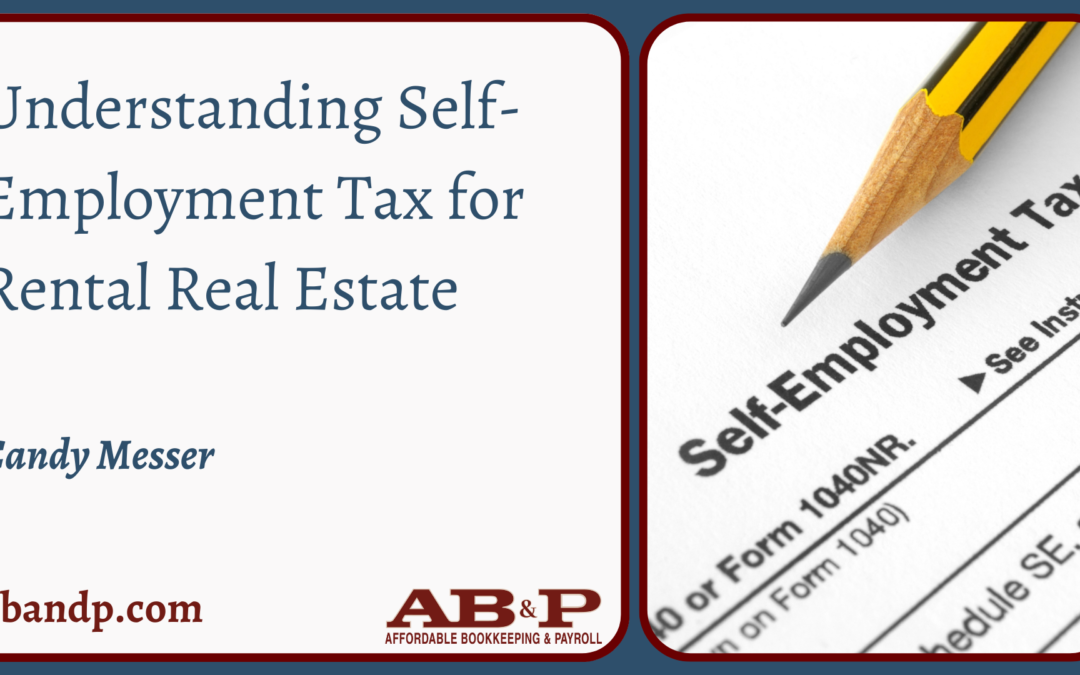Tax planning for real estate activities can involve various tax considerations. One important factor is determining if a loss from real estate is limited due to insufficient basis or by the at-risk or passive activity loss rules. When there is income generated, other questions arise, such as whether it qualifies for the IRS section 199A deduction, if it is subject to the net investment income tax surcharge, or if the rental income is subject to self-employment tax. Today I want to share information that focuses on the intersection of rental real estate and self-employment tax.
In recent Chief Counsel Advice issued by the IRS, two scenarios were described to help understand how they classify real estate rentals for self-employment tax purposes. Both examples involved short-term residential rentals (think Airbnb). The first example included various services provided by the taxpayer, such as linens, kitchen utensils, daily maid services, and beach access. The second example involved renting a fully furnished room with limited services.
In both cases, the individuals were not real estate professionals, and the rental activity was considered to occur in the course of a trade or business. However, the length of stay by customers was less than eight days, which meant the activities were not considered rental activities for passive activity rules. The IRS concluded that the determination of rental activity under passive activity rules does not determine self-employment tax purposes.
Under self-employment tax rules, rental income is generally excluded unless it is received in the course of a trade or business as a real estate agent. In the examples provided, the rental income was excluded from self-employment tax as it was not received in the course of a trade or business. Treasury regulations clarify that rentals from living quarters are not considered self-employment income when no services are provided to the occupants.
The level of services provided to occupants plays a significant role. Services that are primarily for the occupant’s convenience and go beyond what is usually provided in a rental situation may not qualify for the exclusion from self-employment tax. The regulations provide some guidance on what services are considered customary or rendered for the occupant’s convenience. However, there is no clear-cut test, and each case must be evaluated carefully.
For commercial rentals, the question of whether self-employment tax applies to net rental income depends on whether the rental activity is considered a trade or business. If the taxpayer qualifies as a real estate professional, they may be exempt from self-employment tax on net rental income.
Overall, while there is limited guidance on this topic, you and your tax preparer should carefully evaluate the services provided to tenants to determine the applicability of self-employment tax on rental income. Be sure to discuss your situation with your CPA to understand your tax requirements.
